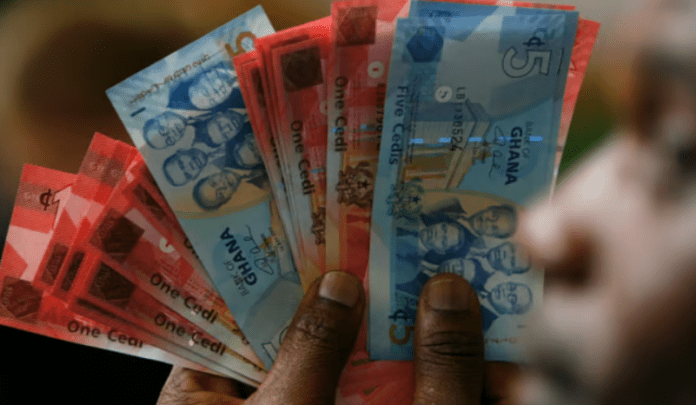Advertisement
London-based
financial
analysis
firm
Fitch
Solutions
has
projected
that
the
Cedi
will
regain
its
value
by
9%
by
year-end
against
the
US
Dollar.
In
an
article
titled
“Sub-Saharan
Africa
Currency
Round-Up:
Greater
Stability
Ahead
in
Second
Half
of
2024,”
it
is
predicted
that
external
conditions
will
provide
more
support
to
Sub-Saharan
African
currencies
in
the
coming
quarters.
The
London-based
ratings
agency
expects
the
Ghanaian
cedi
to
perform
better
in
the
second
half
of
2024.
So
far
this
year,
the
cedi
has
lost
approximately
20%
of
its
value
against
the
US
dollar,
making
it
one
of
the
worst-performing
currencies
globally.
Weak
capital
inflows
due
to
subdued
market
sentiment
and
ongoing
debt
restructuring
negotiations
have
contributed
to
this
decline.
However,
the
start
of
an
economic
recovery,
with
real
GDP
growth
accelerating
from
3.8%
in
Q4
2023
to
4.7%
year-on-year
in
Q1
2024,
has
increased
demand
for
foreign
exchange.
Ghana’s
international
reserves
remain
low,
covering
just
2.5
months
of
imports
as
of
March.
Along
with
IMF
agreements
allowing
the
exchange
rate
to
adjust
to
market
conditions.
Fitch
Solutions
projects
that
the
cedi
will
regain
value
by
9.0%
by
year-end,
from
the
July
9,
2024,
spot.
Fitch
Solutions
forecasts
a
9.0%
recovery
in
the
cedi’s
value
by
the
end
of
the
year,
from
the
July
9,
2024
spot
rate.
This
optimistic
outlook
follows
Ghana’s
recent
agreement
with
international
bondholders
to
restructure
$13
billion
worth
of
external
debt,
expected
to
conclude
by
the
end
of
September
2024.
“We
expect
the
Ghanaian
cedi
to
fare
better
in
H2
[second-half
of
2024]. In the
year
to
date,
the
cedi
has
lost
19.2%
of
its
value
against
the
US
dollar,
positioning
it
among
the
worst
performing
currencies
globally.
Subdued
market
sentiment
amid
debt
restructuring
negotiations
has
kept
capital
inflows
weak,
while
the
start
of
an economic
recovery –
real
GDP
growth
accelerated
from
3.8%
in
Q4
[quarter
4]
2023
to
4.7%
year-on-year
in
quarter
1
2024
–
has
increased
demand
for
foreign
exchange.”

“Furthermore,
Ghana’s
international
reserves
have
remained
low,
covering
just
2.5
months
of
imports
in
March.
Combined
with
IMF
[International
Monetary
Fund]
agreements
to
allow
the
exchange
rate
to
adjust
to
market
conditions,
this
has
led
to
limited
foreign
exchange
intervention
by
the
Bank
of
Ghana
in
the
year-to-date”,
it
added.


